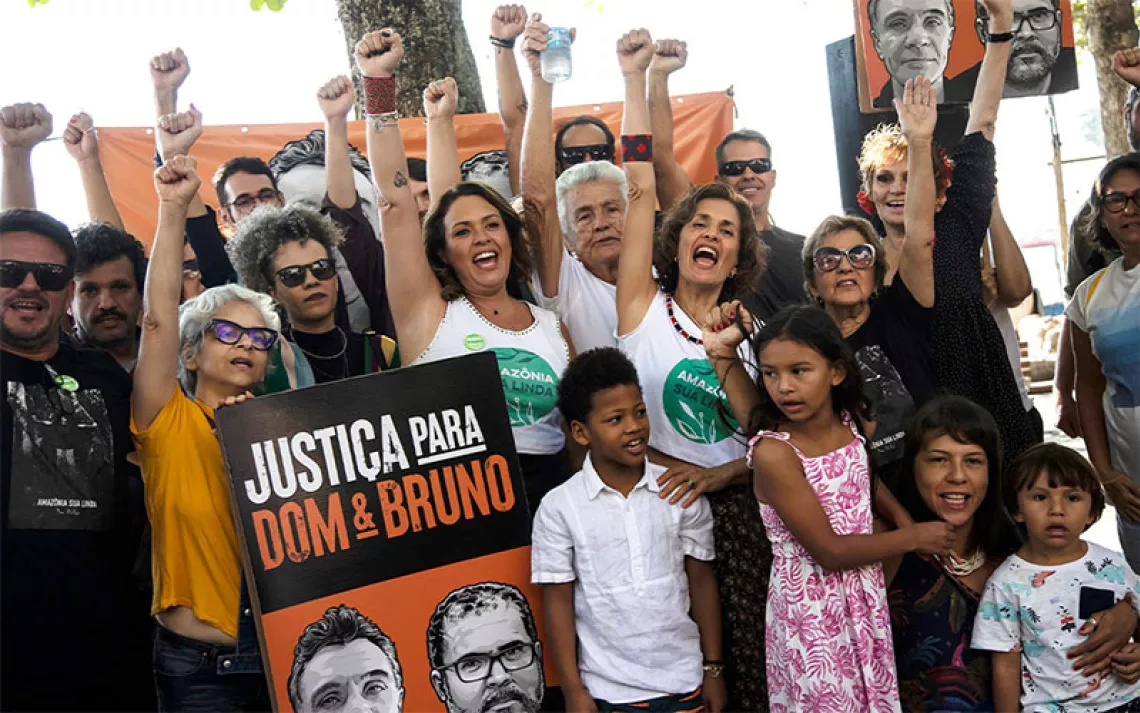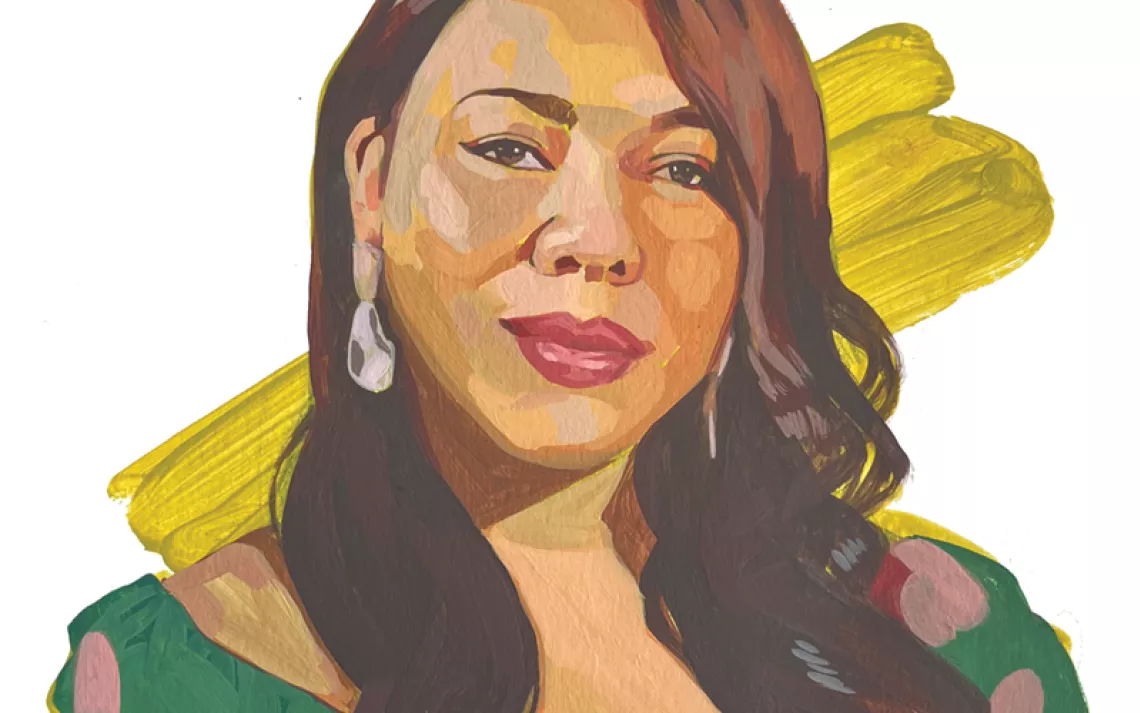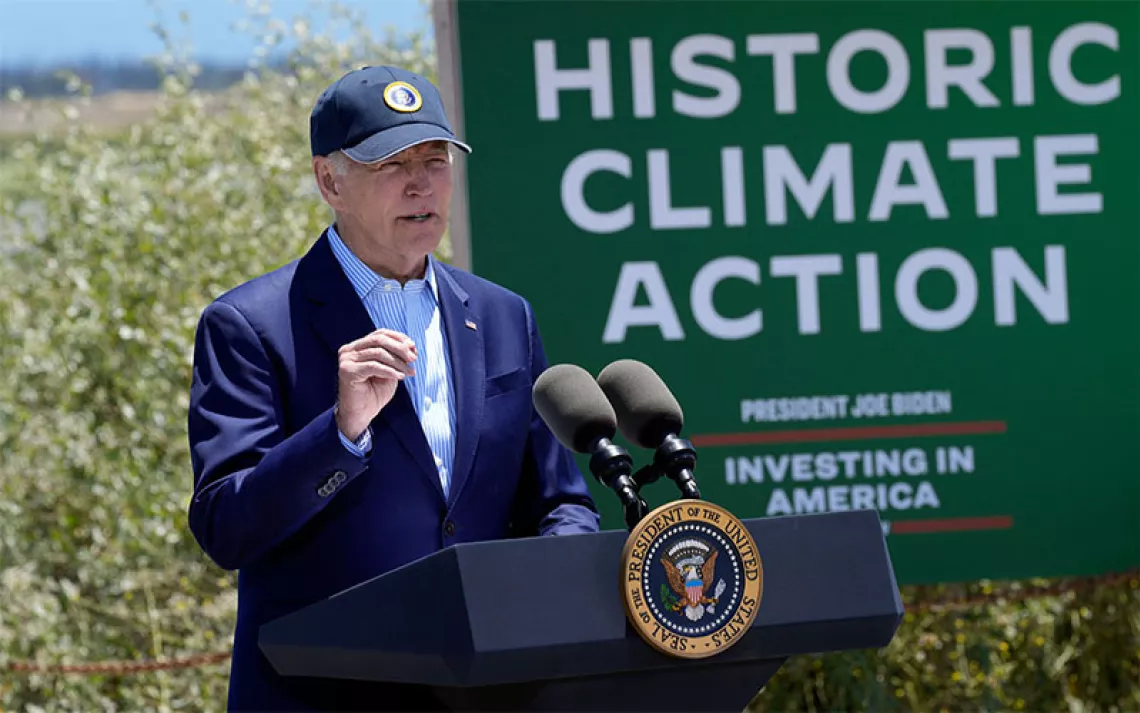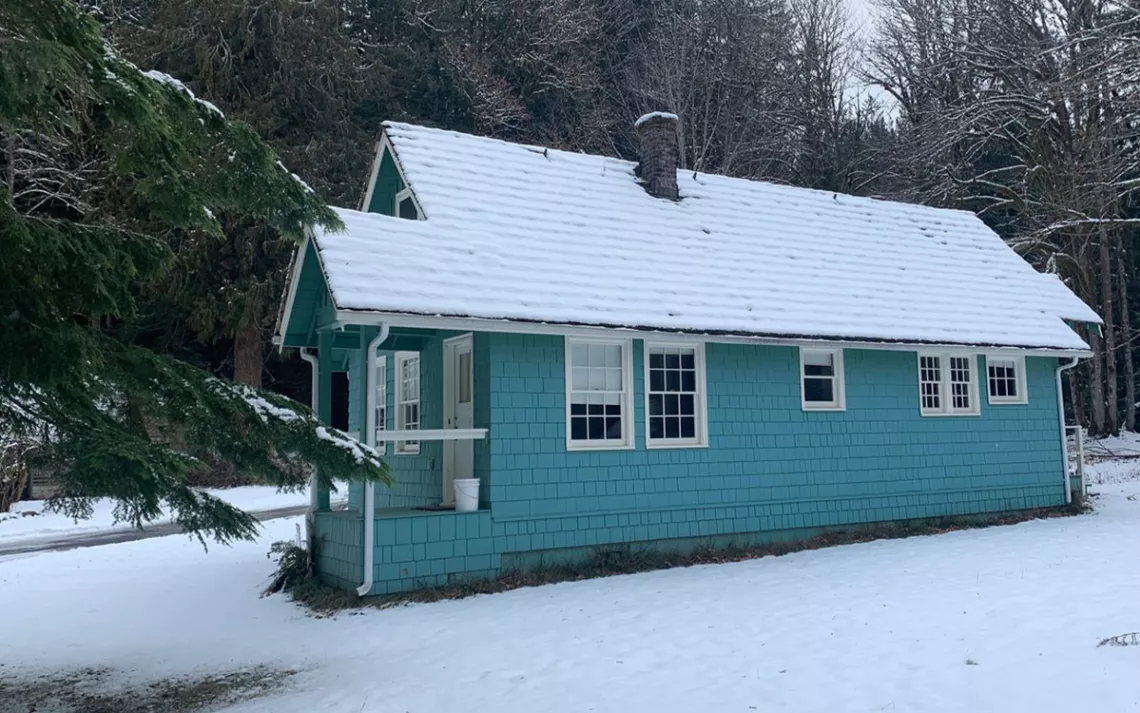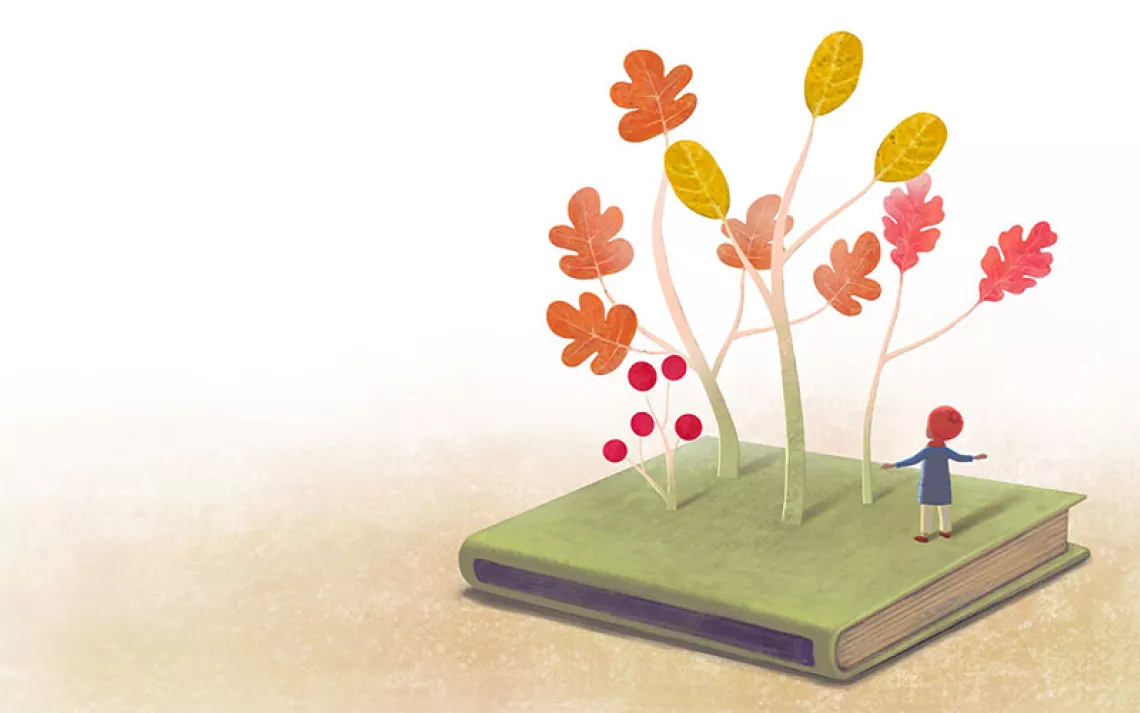It Takes a Village to Beat Back Climate Polluters
Natalie Pien shows what activism can do
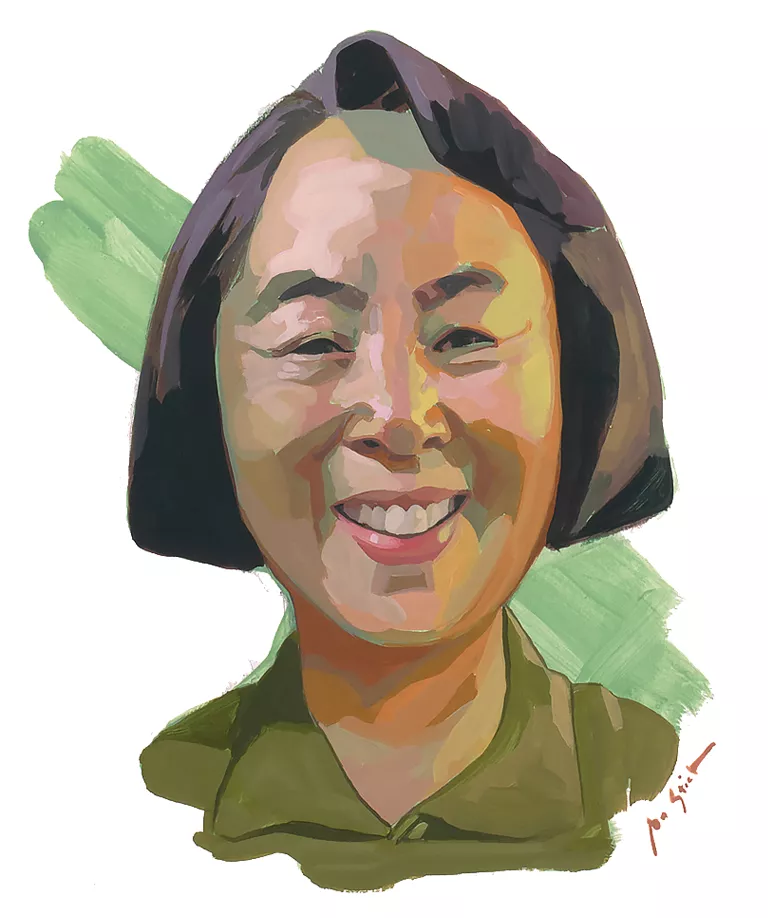
Natalie Pien | Illustration By Jon Stich
When I read Rachel Carson's Silent Spring in high school in 1970, the seed of environmental activism was planted. I was so dismayed that humankind could impact nature in such a negative way. But it wasn't until later that I felt I was becoming the person I was meant to be. About 11 years ago, I discovered the Unitarian Universalist Church. I had passed it frequently and finally went inside one day, read a brochure, and found out about the 7th Principle: respect for the interdependent web of life. The principle that all life is connected really spoke to me.
In 2013, several people who came to the church for a film screening formed 350 Loudoun, to advocate for climate change solutions at the local level. The next year, I went to one of the first Mountain Valley Pipeline permit hearings. The builders had proposed using an Army Corps of Engineers nationwide permit—usually used for work alongside rivers or streams—to allow the Mountain Valley and Atlantic Coast Pipelines to start construction. However, the pipelines would cross hundreds of streams. They were sited on steep slopes, where there's lots of slippage and landslides happening. The risks, combined with the fragile, karst topography where rural communities' drinking water comes from, were evidence enough that these were bad projects.
I started lobbying members of Congress and local elected officials to oppose the projects. I was working with other environmental groups like the Sierra Club and the Chesapeake Climate Action Network to sign petitions and write letters to the editor. Then, based on what I learned from media, reports, and presentations, I started submitting comments to the Federal Energy Regulatory Commission. I would go through a permit, and whatever I had a question on, I'd raise that and ask, "What about this potential problem?" or "How did you come up with this particular proposal?"
In 2016, I volunteered with the Sierra Club to organize a trip for activists from Northern Virginia to visit central Buckingham County. We went to meet the community affected by the Atlantic Coast Pipeline and to see the natural resources that would be impacted. This trip was one of the most important ones I've taken as an activist. The pipeline operators had just cut the trees and left them there. That trip put fracked gas pipelines on the radar for Northern Virginia activists who were unaware. I felt incredibly joyous when the ACP was canceled in 2020, but it was tempered because the MVP was still active. [In July, the Supreme Court dismissed all challenges to the completion of the pipeline.]
Last summer, I attended the Stop MVP event at the White House. And more recently, I participated in a bank disruption at a local Wells Fargo, one of the biggest funders of the Mountain Valley Pipeline. It was organized by Third Act, which is a climate advocacy group led by seniors. People outside had signs and banners, and people inside had letters addressed to CEO Charles Scharf. We took turns reading the letters, and between each reader, we had chants like "Wells Fargo, use your brain. Stop funding climate change!"
Beating back climate polluters to protect nature and frontline communities has been my motivation. I also have a grandbaby and two more on the way, so now I'm working toward not just trying to protect the world for future generations—I'm trying to nurture and raise future generations. Activism never stops!
 The Magazine of The Sierra Club
The Magazine of The Sierra Club
